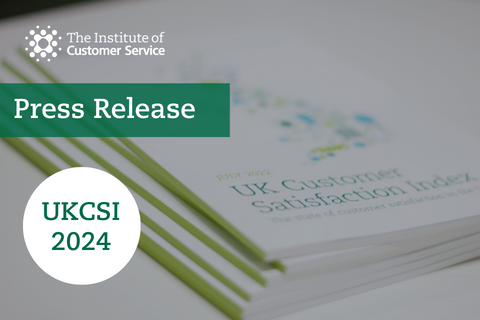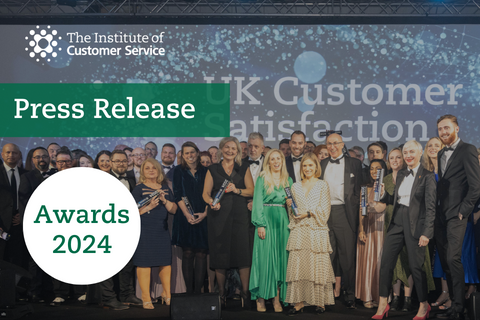A landmark report on the state of customer service across the UK revealed that satisfaction levels are at their lowest since 2010. With customer satisfaction being intrinsically linked to business performance, persistent low levels of satisfaction have the potential to undermine the UK’s already challenging economic recovery.
The latest UK Customer Satisfaction Index (UKCSI), which since 2008 has benchmarked customer satisfaction at over 275 of the UK’s leading organisations, is 75.8 (out of 100), a drop of 0.8 points compared to July 2023 – and 2.6 points below its highpoint of 78.4 in July 2022. The July 2024 UKSCI now sits at its lowest level since July 2010.
Since 2019, the companies that have consistently secured the highest levels of customer satisfaction over the past five years have achieved continued financial stability and discipline. The latest results show this is particularly evident in the food retail sector, where companies with a UKCSI score at least 1 point above the sector average achieved annual average sales growth of 5.8% compared to a market average of just 2.9%.
The UKSCI has also found that stronger satisfaction results in an increasing customer base, especially in the consuming banking sector. Banks and building societies receiving a UKCSI score at least 1 point better than the January 2024 sector average registered an average of 30,434 net current gains. This is compared to a net loss of 4,119 current accounts for organisations whose UKCSI score was 1 point or more below the sector average.
Timpson tops the table for best service
For individual company performance, Timpson scored the highest for customer satisfaction – all while investing in acquisitions, new shops and refits. It is followed by Nationwide and John Lewis.
| Jul-24 Rank | Organisation | Sector | Jul-24 Score |
| 1 | Timpson | Services | 86.0 |
| 2 | Nationwide | Banks & Building Societies | 85.2 |
| 3 | John Lewis | Retail (Non-food) | 85.0 |
| 4 | Jet2holidays.com | Tourism | 84.4 |
| 4 | Waitrose | Retail (Food) | 84.4 |
| 6 | Starling Bank | Banks & Building Societies | 83.9 |
| 7 | M & S | Retail (Non-food) | 83.6 |
| 7 | M & S (food) | Retail (Food) | 83.6 |
| 7 | Monzo Bank | Banks & Building Societies | 83.6 |
| 10 | Greggs | Leisure | 83.4 |
| 10 | Yorkshire Building Society | Banks & Building Societies | 83.4 |
Continuing a trend from January’s UKCSI, the report finds that a third of customers prefer excellent service, even if it costs more. Better service also results in customers trusting an organisation and feeling reassured that they receive the support and advice they need.
Alongside poor reputation posing a broader economic impact, the report also finds that poor service could be affecting business growth and performance. 65% of employees surveyed indicated they spend an average 3.3 days per month dealing with service failures or problems. Extrapolated across every sector, this presents a £6.8bn monthly hit for Britain’s economy.
Commenting on the latest report, Jo Causon, CEO of the Institute of Customer Service, said:
“The UK Customer Satisfaction Index is the independent barometer for the health of the nation’s service levels. Unfortunately, the current outlook isn’t where we need it to be, despite our research showing that higher levels of customer satisfaction correlate with financial stability and growth.
Business leaders need to understand the evolving needs and expectations of their customers, developing their organisations’ approach accordingly to unlock the sustainable growth the economy needs. The [new] government’s post-election business policy agenda should encourage all organisations to understand and serve customers better if we are to put our economy back on track.”
The UK Customer Satisfaction Index is a twice-yearly report based on 60,000 survey responses provided by more than 15,000 individual customers, representative of the UK adult population.


